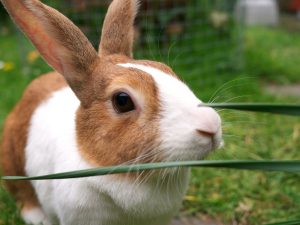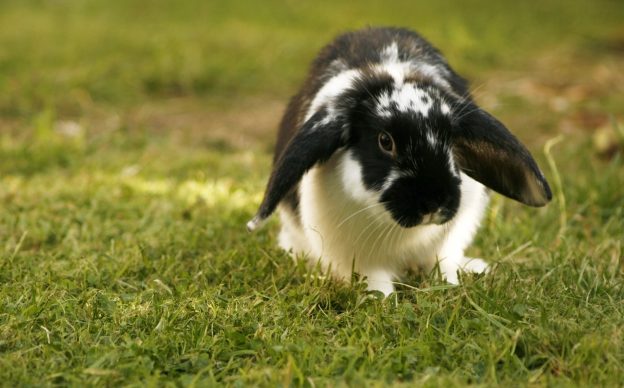
Did you know there are estimated to be around 900,000 rabbits kept as pets in the UK?* Rabbits can make wonderful pets; they can be tamed and taught to enjoy being handled, and they are relatively undemanding in comparison to some other animals. However, they do have some complex needs and require time and commitment in order to live a happy and healthy life.
It is important never to pursue pet ownership on impulse, and to think carefully about how your new pet will fit into your life; this involves speaking to the appropriate industry experts, and educating yourself about the responsibilities behind pet ownership. If you’re serious about welcoming rabbits to the family, there are a few things you need to consider…
1. Rabbits are social animals…
You might be thinking about buying one rabbit, but it would be much better to welcome two (provided they are neutered to stop fighting and breeding). Rabbits are naturally social animals and, therefore, companionship is vital to their wellbeing. Single rabbits that are not given enough attention by their owners will soon become bored and lonely. Therefore it is important to, where possible, keep rabbits in pairs or groups.
2. Rabbits need more than just carrots…
Most of us are familiar with an image of Bugs Bunny, carrot in hand. Its true rabbits love carrots; but they require a varied, well balanced diet in order to live a happy and healthy life. Take note of the following foods…
- Hay – Hay forms an essential part of a rabbits diet by helping to stimulate intestinal movement. Rabbit’s teeth grow continuously throughout its life; hay also helps to wear down teeth through chewing and grinding.
- Vegetables and sweet treats – Carrots aren’t the only vegetables your rabbits will enjoy and, in fact carrots should only be fed occasionally due to their high sugar content. Other good choices include broccoli, cabbage, dandelion green and kale. You can also offer your rabbits fruit such as apple slices, pears and strawberries as a sweet treat. Be aware that treats should only be offered in moderation in order to prevent your rabbits from developing obesity or intestinal problems.
- Water – As is the case with all animals, water is vital to rabbit health so make sure your rabbits always have access to fresh water.
It is important to make sure you introduce any dietary changes slowly, as making changes too quickly can cause potentially toxic intestinal problems in your rabbit. In addition – do not be alarmed if you find your rabbit eating stool – this is normal! Rabbits first pass soft moist stools called ‘caecotrophs’ which they then eat again to extract vital nutrients that keep your rabbit healthy.
3. Rabbits need a safe, secure and spacious living space
Whether your rabbits will be living inside or outside, it is important to provide an environment that is safe, secure and allows plenty of breathing space. Your cage/hutch should provide an enclosed area that allows for undisturbed rest, as well as be weatherproof to protect your rabbits from extreme weather conditions. Your rabbits should also have daily access to a large exercise run (or secure garden).
Rabbits, much like humans, become easily bored if their environments do not provide both physical and mental stimulation; therefore it is also important that you provide enrichment such as tunnels and climbing platforms, twigs and places to hide. Alternatively, digging is a common pastime for both wild and domesticated rabbits; by providing an appropriate substitute, for example a sand or earth pit; you can help keep your rabbits occupied and busy without damaging your home or garden.
4. You need to watch out for signs of ill health!
As rabbits are easily stressed by routine or diet changes, sometimes even when an owner has made all the right precautions; rabbits will still become unwell. It is often difficult to determine illness in rabbits, as they often hide symptoms of pain and discomfort; however the most common tell-tale signs include lack of appetite, limping when walking, inability to sleep and heavy or fast breathing. Always contact your vet if you feel there is something wrong with your rabbit.
5. Thinking of getting a pair of rabbits? Tick these essentials off of your list!
Before you bring your rabbits home, it is essential you have the necessary supplies needed to provide a safe home. Make sure you have the following checked off as a minimum!
- A suitable cage or hutch
- Straw
- A water bottle or bowl
- A food bowl
- Appropriate toys and chew toys
- Grass hay
- Fruit and Veg
- Bedding materials
- Grooming brushes and combs
- Rabbit-friendly vets
- Vaccinations
For more information and advice on keeping happy and healthy rabbits please visit the Rabbit Welfare Association.

